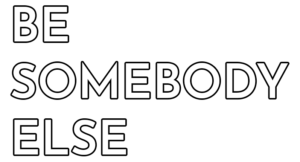A Line of Responsibility

Cocteau, like Picasso, took the line seriously. His mark, undeniably his, a committed gesture: a signature.
I’m not one for football, probably because of everything that surrounds it, but catching up on what happened when some England footballers were unable to score goals in the final of Euro 2020, I feel more contempt than ever for most of our politicians.
What does it say that some very young men commit themselves to a course of action that will mark them for the rest of their lives, never able to shake responsibility for what they do in the name of a game that appears, for a little while, to a lot of people, to mean something, when people like our prime minister seems incapable of ever taking responsibility for decisions that really shape our lives?
Let’s respect people who take responsibility (Saka, Sancho, Rashford and Southgate) and cast off the ones who don’t (Johnson, Patel, Javid and Coffey – and Johnson again: he’s twice as bad). Nothing will improve if it’s administered by cowards and liars.
Elaboration

When I look at any Warhol painting I see something about elaboration – what Derrida called an ‘American’ form of abuse. Warhol’s response to America: not to forget elaboration.
Someone asked me to elaborate on something I’d said today. I politely declined. If someone wants to make more of something I say they need to do it, not me. I can give them a hand, but let’s think about what happens when we elaborate.
Elaboration takes something beyond the point where someone, often the author of an idea, has chosen to leave it. Elaboration is not improvisation, (which I’d be happy to do). When an invitation to elaborate is refused this is usually seen as rather selfish. I think it is anything but selfish to preserve the integrity of something you offered in the first place (not the person asking for an elaboration).
Elaboration is a raw form of something like capitalism, a kind of resource-mining that in psychotherapy runs against the grain of Freud’s fundamental rule.
Rather than ask for an elaboration, offer a response … which you might call an improvisation. In your response you’ll be able to recognise yourself.
Remember also something else Derrida wrote about. Rather than assume that beginning with a question is unproblematic, consider whether initiating conversation is always right.
It’s not always good to talk.
Without Control

I spent most of an hour looking at this wonderful painting last time I visited Krakow. Arriving at the airport I noticed a life-sized cut-out of her. Poles have a way of attracting attention.
That took up about ten minutes of looking until I realised the real thing was at the National Museum.
So I went to the MNK and there I was, staring at her.
Something about how we can affect things, although we can’t control them. It’s such an crucial distinction.
Haitus

Bonnard’s work seems to suggest a hiatus. All of it: as if something is opening, a gap is appearing, something is forming but who knows what yet. I feel as if this is now, to me. So much is happening and so much of it feels unreadable. Impossible to know. More than usual, and life often feels indecipherable to me.
Setting aside a tendency to look for mystery that I have become familiar with to the point it now almost feels fun again, in a way it may once have, I think, when I was a child, I hope I can let this happen.
Meanwhile I am reading Edward St Aubyn’s Double Bind and finding it wonderful. I am incredulous at the Guardian’s news coverage (today lots of football and stories involving Australia. Ukraine? Russia? No. Not really). I look for something on television to make me laugh. Not a lot. Avoid the Guardian’s culture pages, they read like the inside of a sweaty young man’s sock.
Word
The language of computers is somehow annihilating. Words – viral, web, meme, seem to kill off the thing in the real world. Even ‘web’ seems to have less to do with spiders than a keyboard now.

